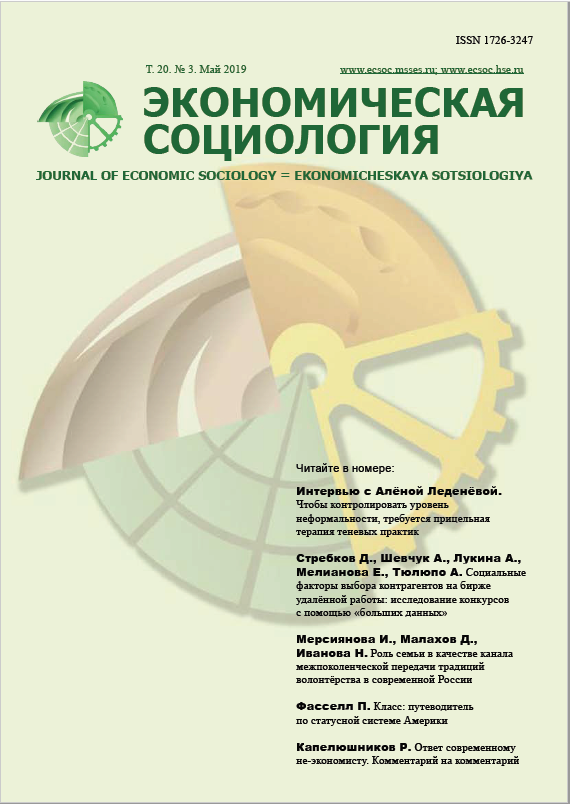The Social Differences and Political Participation: The Mediating Effect of Ideological Position
Abstract
The article considers ideological orientation as a mediator of social position influence on political participation. There is a significant number of works in the literature today that examine each of the chains of this relationship separately (the influence of social position on political preferences, the impact of political preferences on political participation). However, the role of political preference as a mediator of the influence of social position on political participation has not been studied. The current work contributes to the development of this approach by applying a model of mediation effect. The model consists of three variables: dependent (political participation), independent (social position), and mediator variable (political preferences). In order to construct the corresponding regressions and assess significances, the authors constructed a three-dimensional space of political preferences: the first axis is associated with the ideas of the agreement about material inequality, the second axis is the ideas about the importance of a welfare state, and the third axis is the degree of tolerance for migrants. Two types of political participation were considered with respect to the dependent variable: voting and direct participation initiated by citizens rather than by government. The study examined data from the 8th wave of the European Social Survey (2016), and the analysis was carried out on three groups of countries: Western Europe (Belgium, Austria, Germany, France), post-socialist countries of Central Europe (Czech Republic, Hungary, Poland), and Russia. The results reveal the statistical significance of political preferences as a mediator of the influence of social position on political participation; meanwhile, the direction of influence was nearly the same for the three groups of countries. The differences between the states were in the (non-)significance of the coefficients themselves. As a whole, it may be concluded that in relation to Western countries, the obtained patterns correspond quite accurately to the present views in the literature; the impact of social position on political participation in post-socialist countries (including Russia) is less significant, as only a few social differences are manifested in the political sphere.













